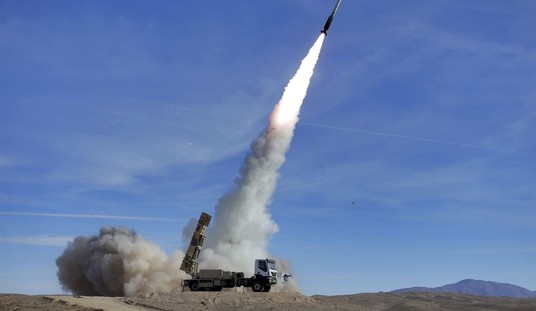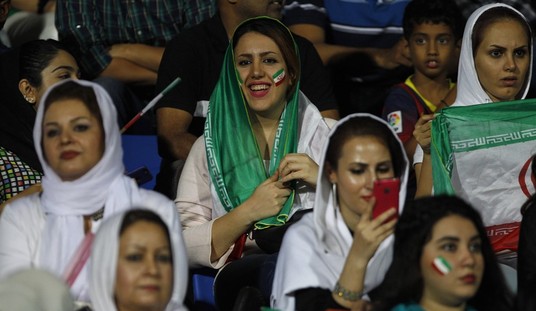The year was 1992. Bill Clinton had won the Presidential election, and he was preparing to make appointments to fill Cabinet positions. The leading candidate for Secretary of Education was an African-American woman who was head of his transition team for education, labor and the humanities, Johnnetta Cole. She was President of Spelman College in Atlanta, a highly regarded institution for black women, and sat on the boards of many corporations, including the Atlanta based Coca-Cola, and Merck pharmaceuticals. She currently is Director of the Smithsonian Museum of African Art. If you Google or Bing her name, there will be scores of sites linking to her solid establishment pedigree.
Only one thing is left out, and seems nowhere to be found. That is her longstanding ties to the Communist Party of the United States. That was not the case as Clinton was preparing to assume the presidency. Using material furnished to him by various sources, David Twersky, then Washington editor of the Jewish Forward, revealed the hidden story of Cole’s then recent past. Cole, he revealed, had held leadership positions in the pro-Castro Venceremos Brigades, a group that sent American volunteers to work in Cuba in support of the Cuban regime. She also held a major position on the Executive Board of the U.S. Peace Council, the pro-Soviet affiliate of the World Peace Council, the “peace” organization of the Communist bloc. As the Twersky articles reverberated through Washington, Cole responded that “right-wing extremists” were after her because she had opposed the war in Vietnam and Reagan’s invasion of Grenada.
Cole was being more than disingenuous. The Forward was not a right-wing paper; indeed, it had editorially endorsed Clinton for president. As for Cole, she was not part of the mainstream opposition to the war in Vietnam, but a far-left radical who supported a Vietnamese Communist victory. When the folk-singer Joan Baez circulated a petition condemning the North Vietnamese government for human rights violations and political repression, Cole signed a petition denouncing Baez as “immoral.” Printed as an ad by the U.S. Peace Council in The New York Times, it asserted that under Communist rule, Vietnam “now enjoys human rights as it has never known in history.” As for Grenada, she was not simply an opponent of the Reagan policy, but president of the U.S.-Grenada Friendship Society, a Communist front group that offered support to the Marxist-Leninist regime of Maurice Bishop. Under her signature, the group issued a statement that spoke of “a history of U.S. aggression and genocidal practices against people of color around the world,” and that said America’s “hidden agenda” was to “destroy all enemies of corporate America.”
What did the Clinton team do with this news? First, the woman who would be the first press secretary of the new President, Dee Dee Myers, explained that the charges were simply “silly,” and was “something we’re just not concerned about.” An aide to Al Gore said that Cole had suffered an “unfair smear.” Samuel Berger, soon to be named Deputy National Security Advisor, said this hullabaloo was about the “distant past.” In a column in The New York Post, its editorial page editor, the late Eric Breindel, wrote that if Cole got an appointment, it would send an “inescapable” message that the Clinton administration was not “interested in distinguishing between a Left-liberal and someone who cast her lot with the cause of Communist totalitarianism.” In response, Jesse Jackson replied that “Jewish complaints” had harmed her chances for a Cabinet post.
The bottom line was that Bill Clinton, as he had with the also controversial Lani Guinier, did not stand by Johnnetta Cole. He did not remove her from the transition team. Other Clinton appointees-including Donna Shalala and Marian Wright Edelman, had both served with Cole on the Board of Trustees of Spelman College and Clinton did not want to offend them. But just as Cole’s chief supporters in New York, Susan Thomases and Harold Ickes Jr. were preparing a party to honor her for gaining the spot as Secretary of Education, Cole was told that it was not to be. Appointing someone as a Cabinet secretary whose pro-Communist positions were so open was something the new president was not about to risk.
Let us move to our current year- 2009. Again a new president is in office. A Democrat committed to change, who was himself accused during the campaign of having a background close to far Left radical circles. Most Americans viewed him quite differently, as a candidate of the center, whose inoffensive style and evident non-ideological approach to things, marked him as a pragmatist who would govern not from the Left, but from the solid center in which most of his countrymen dwelled.
Yet, like Bill Clinton, Barack Obama has seen fit to actually appoint a Communist to a position of importance in the White House. This time, however, the appointment has received almost no mainstream notice, and those who have knowledge of it, seem to think it is no big deal. After all, Communists too are on the side of change on behalf of the people. As they used to say in the 30’s, they are just “liberals in a hurry.”
The man in question is named Van Jones, and President Obama appointed him as a czar in charge of developing “green energy policy.” His exact title is Special Advisor for Green Jobs, Enterprise and Innovation at the White House Council on Environmental Quality. His responsibility is to coordinate the stimulus spending to assure that a hefty portion of it goes to projects that promote green energy. What in Jones’ recent background should raise questions about his worthiness for the appointment? What was the expertise that made him qualified for the position? He was founder of in September 2007 of “Green For All,” a non-governmental organization “dedicated to building an inclusive green economy strong enough to lift people out of poverty … advocating for local, state and federal commitment to job creation, job training, and entrepreneurial opportunities in the emerging green economy – especially for people from disadvantaged communities.” He also attended Yale Law School, thus following a career path similar to that of President Obama. And like the President, he recently said he considers himself a “community organizer.”
As David Horowitz has pointed out, from 1992 until 2002, Jones was a member of a radical communist group that was dedicated to “organizing a revolutionary movement in America.” Arrested during the Rodney King riots in Los Angeles, and briefly sent to jail, Jones met, he said “communists and anarchists,” and decided “ ‘This is what I need to be part of.’” He said that he spent “the next ten years of my life working with a lot of those people I met in jail, trying to be a revolutionary.”
The group he joined was Storm, a Bay Area Marxist-Maoist collective staffed by members of radical nonprofit groups, who worked with another body Jones had founded, The Ella Baker Center for Human Rights, that sought to provide alternative to prison for African-Americans convicted of crimes. Storm made its position clear in its published manifesto, Reclaiming Revolution:Standing Together to Form a Revolutionary Movement. The group defined itself as a “revolutionary cadre organization,” that understood that “revolutionary Marxist politics would be central to the development of a successful liberation movement in this country.” Its commitment was to “Marxist-Leninist politics,” which posed a problem- since its shrewd leaders knew that “most young activists…were hostile to revolutionary Marxism.”
That meant subterfuge: acknowledging that they could not appear as “an explicitly Marxist organization.” The answer was two tiers of members-a leadership of Marxists and a membership that had to support its unity program that was not “explicitly Marxist.” The group had ties to the South African Communist Party, the breakoff group from the American CP, the Committees of Correspondence for Democracy and Socialism, and it honored leaders like Amilcar Cabral, the late Marxist revolutionary of Guinea-Bissau and the Cape Verde Islands, who lauded Lenin “as the greatest champion of the national liberation of the peoples.” In 2006, Van Jones named his newborn son “Cabral” in the Marxist leader’s honor.
A television report on Jones, by Glenn Beck, can be found here. Beck’s news report goes through much of what I have discussed above. He points out, citing a 2005 article in The East Bay Express, that Jones still considers himself a “revolutionary, but just a more effective one.” When the show asked the White House for a comment on whether they had explored Jones’ radical past, they responded not with an answer, but simply with a statement that Jones was focused “on one policy goal: building clean energy incentives which create 21st century jobs.”
It was a non-answer, similar to Dee Dee Myers statement that exploring Johnnetta Cole’s Marxist background was simply “silly.” So the question remains. Is Van Jones still a Marxist revolutionary, who hopes to use the funds he manages as Green czar to develop the kind of policies that still require subterfuge to create, or has he legitimately moved on and grown out of his fairly recent extreme leftist views?
One possible answer comes from a contributor to Left Forum, an internet group tied to the Committees of Correspondence. The entry is as follows:
I had to quickly get to the next panel, since I was on it, and there was only about five minutes between sessions. “Building a Progressive Majority and Advancing a Vision of Socialism” was the title, and it was pulled together by my group, Committees of Correspondence for Democracy and Socialism, and chaired by Pat Fry, an SEIU staffer. I led off by presenting Van Jones’s program for Green Jobs for inner city youth, but framing it as a larger structural reform project that could, if done right, unite a progressive majority and help get us out of the current crisis. At the same time, we had to unite a militant minority around socialist tasks, so I offered the solidarity economy movement and its projects as practical examples of cooperative forms that could, within the capitalist present, point to a socialist future.
Is this cadre’s comment, meant to show how Jones’ program can be used to advance socialism, what Jones too thinks is the path forward? The public deserves an answer, and the White House should ask Jones to provide one.
What a long way we have come since 1992, when an incoming president had to think twice before appointing a pro-Communist to a powerful position in the White House.








Join the conversation as a VIP Member